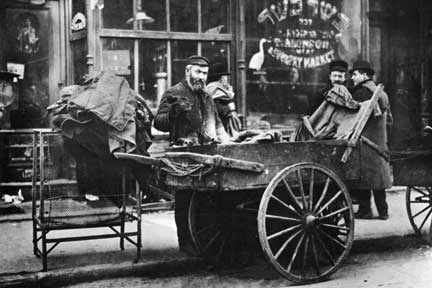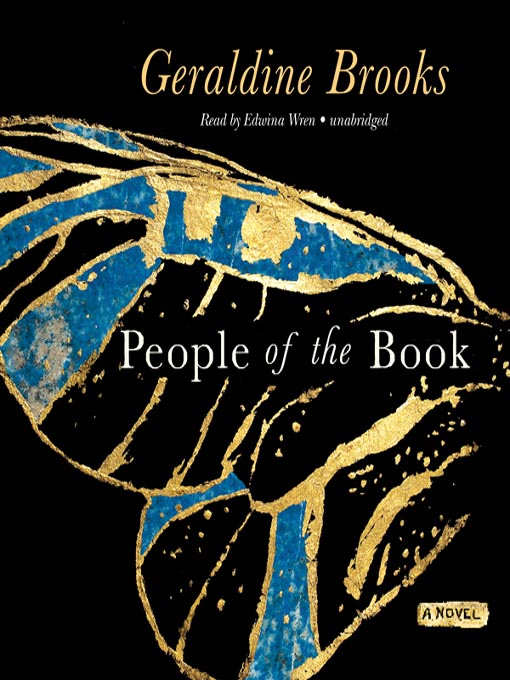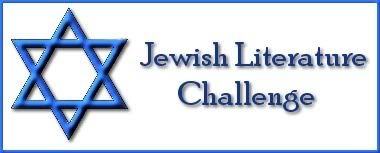Thanks to a marathon session of Eat, Pray, Sleep (hat tip to Adina on that one, talking about the three-day
chagim), I had a lot of time to read. My usual intent is to avoid school reading on the
chagim and Shabbat, because, for me, school is my version of "work." I sometimes make exceptions for Judaica because, well, Judaica is my school, my blog, my work, my life. It's a delicate balance, but I work it out well. Thus, most of the time, I read what I'll call "pleasure reading" books over the
chagim and Shabbat -- usually historical fiction (in the vein of "
The Invisible Bridge
" by Julie Orringer and the like). Every now and again, I'll sit down with something more serious (or not) in the realm of nonfiction. This past three-day Sukkot/Shabbat fest had me glued to my chair with Sue Fishkoff's upcoming book, "
Kosher Nation
: Why More an More of America's Food Answers to a Higher Authority."
I got the book as a pre-release read, one of the many perks of being a blogger. I was notified of this book's impending publishing many months ago, and I even blogged about it over the summer in my "
I'm An Oscar Meyer Weiner ..." blog post. I was seriously excited. So let's talk.
I haven't had a chance to read Fishkoff's "
The Rebbe's Army
," yet, but after reading "Kosher Nation," I can only imagine how good it must be. Fishkoff has this elegance about her writing, reporting without being forceful, and maintaining a neutral point of view. Fishkoff is a reporter with JTA, so I have high standards for these writer types -- can they write? or are they just good reporters? are they biased? is there an underlying current of sentiment? do they let the sources speak for themselves? is the BIG QUESTION answered or are we at least left questioning?
 |
Synagogue membership went up during Prohibition because
sacramental wine was exempt from the law! |
The great thing about Fishkoff is that she's not only an amazing reporter, but she's also a talented writer (a rarity -- in my experience, you can either report well and write worth you know what, or you are an amazing writer but fail to report properly). The individuals that pepper this book -- from the
masghichim to the "eco-kosher" movement specialists to the big wigs at some of the nation's largest kashrut authorities -- tell the story for us, Fishkoff just sews the stories together, creating a fluid discussion of the boom in kosher in the United States. We learn about why people buy kosher (and most of those people aren't even Jewish) and why companies seek out kashrut status -- even when they don't have a large Jewish customer base. The story of a baker who seeks out certification because he wants his patrons to trust him when he says that he only uses vegetable shortening is a perfect example of what Fishkoff is trying to explain: Kosher isn't just Jewish.
I applaud her for not dwelling solely on the politics of kashrut, and she blocks off the issue to a few chapters, which is appreciated. The politics are explained with a delicate pen, and reading about the kosher wars of the early 1900s blew my mind. There could be a movie ... based on the book. I have a title: "Kosher: A Bloody, Bloody History." It's multi-faceted, of course, because we have the blood draining of animals, but also people being
killed over it. Yes, killed. You want to read the mafioso-like stories? Buy the book . But really, it will shock you. You think the Rubashkin and Monsey chicken fiascos were bad. People have been killed for less. Over KASHRUT.
. But really, it will shock you. You think the Rubashkin and Monsey chicken fiascos were bad. People have been killed for less. Over KASHRUT.
All the drama aside, the book left me with a lot of things to think about. Because the book is filled with stories -- the plight of the mashgiach, the struggles of the eco-kosher movement, the battle to keep kosher when you live in the middle of nowhere -- we hear a lot from people. Most of these people talk about the way food helps them connect to HaShem, which I think is something I didn't expect. For me, kosher means being 110 percent cognizant of every item of food you put in your body, because every step of the process requires you to think, think, think about what you're doing (what you buy, how you prepare it, how you cook it, how you eat it, what blessing you say, etc.). Thus, it was incredibly meaningful to read about the very religious experience people have with food and why keeping kosher is more than just laws and customs. Hearing the mashgiach of a Northwestern juice factory talk about davening Yom Kippur and fasting in a factory -- alone -- and how it was the most powerful Yom Kippur for him because he did the work in prayer and didn't rely on a chazzan? That's brilliant. That's a narrative worth reading.
 |
| Kosher meat market on the Lower East Side |
But then there were the ... less than stellar moments in the book. Hat's off to Fishkoff for including everyone -- including the naysayers. But some of these people ... yikes. There's the 40-year-old California chef who thinks that kashrut is an insult. It disallows you from having meals with other people (which, I sort of get the logic of). What I don't get the logic of is her asinine reason for eating pork. You see, this woman's mom was a "hidden child" during the Holocaust, and as a result, her mother regularly ate pork and bacon growing up. Thus, this woman, this 40-year-old woman, feels obligated to eat the stuff ... "I feel like I would be betraying my mom if I didn't," she said. Are you
kidding me? That's like saying, my mom stole stuff, so to honor her memory, I do the same. I mean, really? The book goes on and on about secular Jews who don't keep kosher but can't bring themselves to eat pork and shellfish -- the two biggies for most Jews on the "don't eat this" list. And this woman honors her mother, who survived the Shoah, by eating
pork. Barf. This is the crazy of kashrut. It's unfortunate, I think, that this woman feels this way. (She's quoted later in the book talking about how ridiculous she thinks kashrut is, and she's really the only person in the book who appears to have a
negative view of kashrut.)

And then there's the shocking. I already alluded to the kosher wars of the early 1900s, but the statistics that appear in the first several chapters of the books are plentiful and sometimes shocking. Here's the one that struck me the most:
"According to a 2006 Conservative movement survey ... 87 percent of Conservative rabbis and cantors eat in non-kosher restaurants, although just 9 percent will order meat" (98). Eighty-seven percent? That's an incredibly, incredibly high number I think. Especially considering that the Conservative movement is -- according to its precepts -- just as committed to kashrut as Orthodoxy. Yet, yikes. There's a story of a woman in the book whose father used to take them out to eat dairy/fish at non-kosher restaurants, while they kept kosher in the house. One day, this woman's sister was eating her tuna salad sandwich when she realized it tasted funny. Turns out the tuna was chicken. The woman's father vowed that they'd never eat out again, and the woman -- to this day -- keeps kosher. In my mind, there is enough room for error in non-kosher restaurants that I wouldn't even want to approach the idea of eating out vegetarian/dairy. When Tuvia and I decided to go kosher both in and outside of the home, it was largely because we just couldn't deal -- the idea that we had no idea what the fish we were eating out was being cooked with (on the same grill as pork? as a cheeseburger?) disturbed us to the point that we couldn't negotiate that anymore. Even eating out cold -- you don't know that the salad knife didn't also cut some catfish for that yummy fish salad they also serve. The Conservative rabbis stat just bothers me. It seems, well, questionable.
Lastly, I just want to mention one more interesting storyline: the 2008 creation of the Society for Classical Reform Judaism. Yes this is a group devoted to the old-school way of Reform Judaism: no Hebrew, no
kippot, no
tallit, no
b'nai mitzvah, etc. These individuals see other Reform Jews on the slippery slope of observance and "recognizing Orthodox authority." The concept of this is fascinating and frustrating. I'm curious if any of my readers are keen on this movement or know anyone in the Reform movement who is jonesing for the days of yore.
Overall: Sue Fishkoff is amazing, and this book was a beautiful exploration of kashrut -- from here to the plants in China that excitedly seek kashrut status. Fishkoff really takes us into the world of the
mashgiach, restaurants, factory life, and why so many people trust items that are kosher, despite so few buyers in the market are actually purchasing the items for religious reasons. The balance of the book is excellent, and Fishkoff lets the stories and individuals speak for themselves without pushing an agenda. Definitely pick up this book. You'll be surprised and shocked at the detail that goes into ritual slaughter and the ease of which some
mashgiachs simply push buttons to get the process done. Either way, this book has something for everyone -- even the non-kosher consumer.
If you read this, let me know what you think. I'd love to start a dialogue!
PS: Did you know that
treyf doesn't mean "not kosher" or "unfit," but rather refers to tearing -- the prohibition of tearing the flesh from an animal (לטרוף). Fascinating!

 2:00 PM
2:00 PM
 Chaviva Gordon-Bennett
Chaviva Gordon-Bennett























